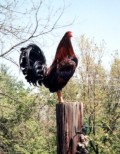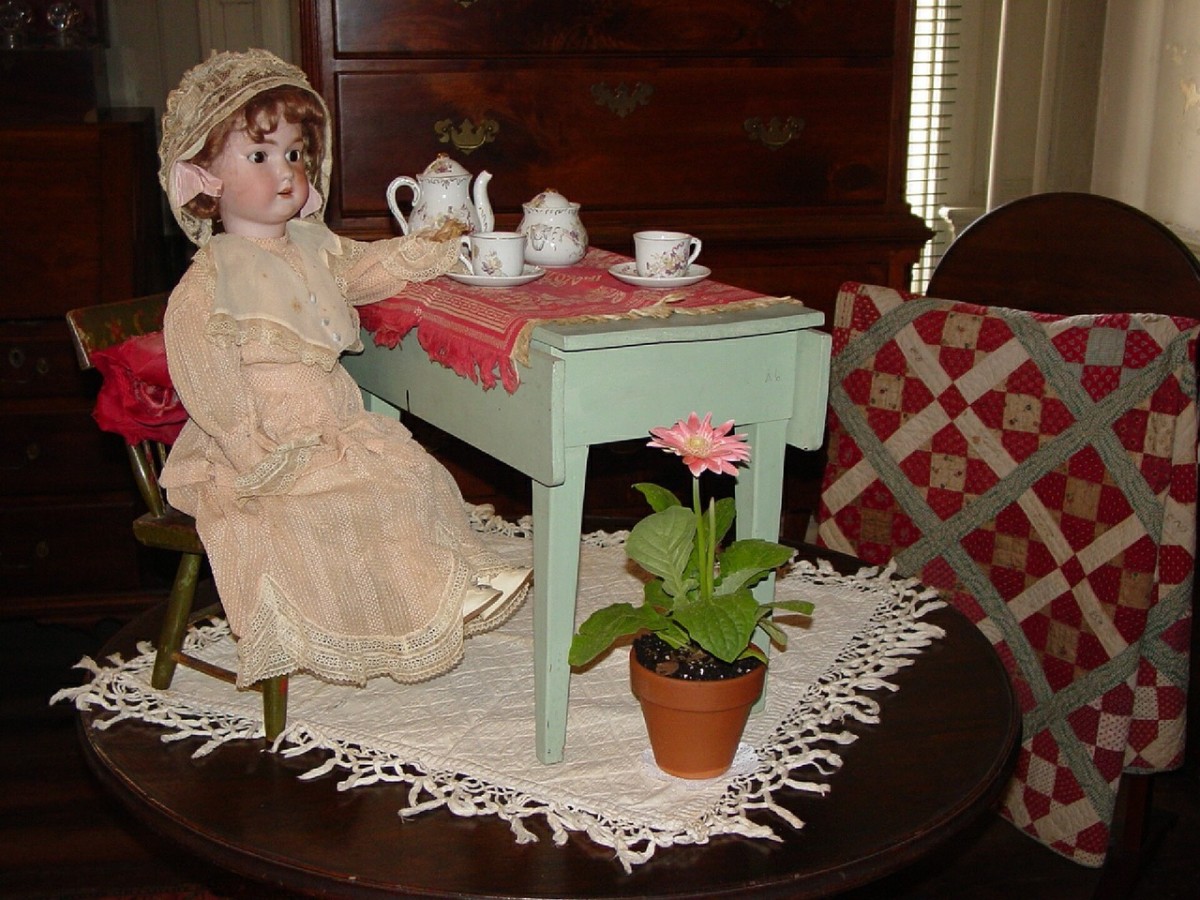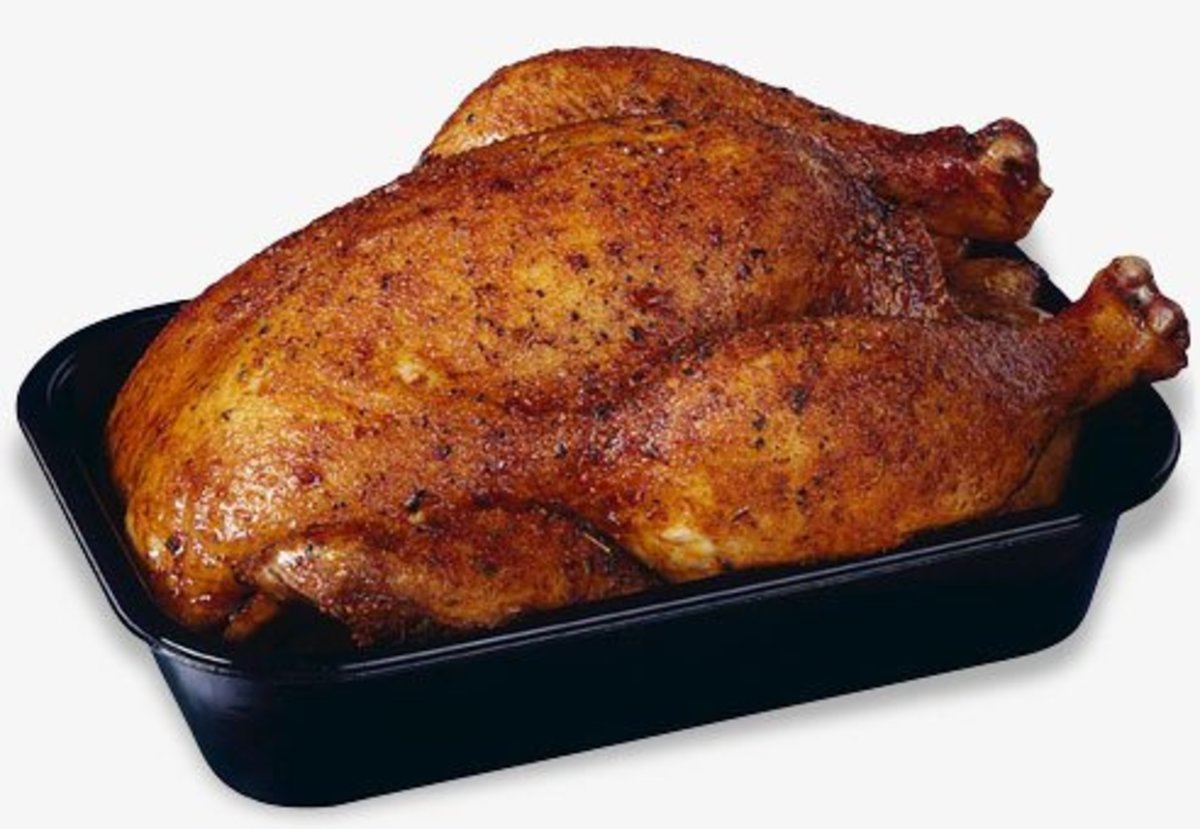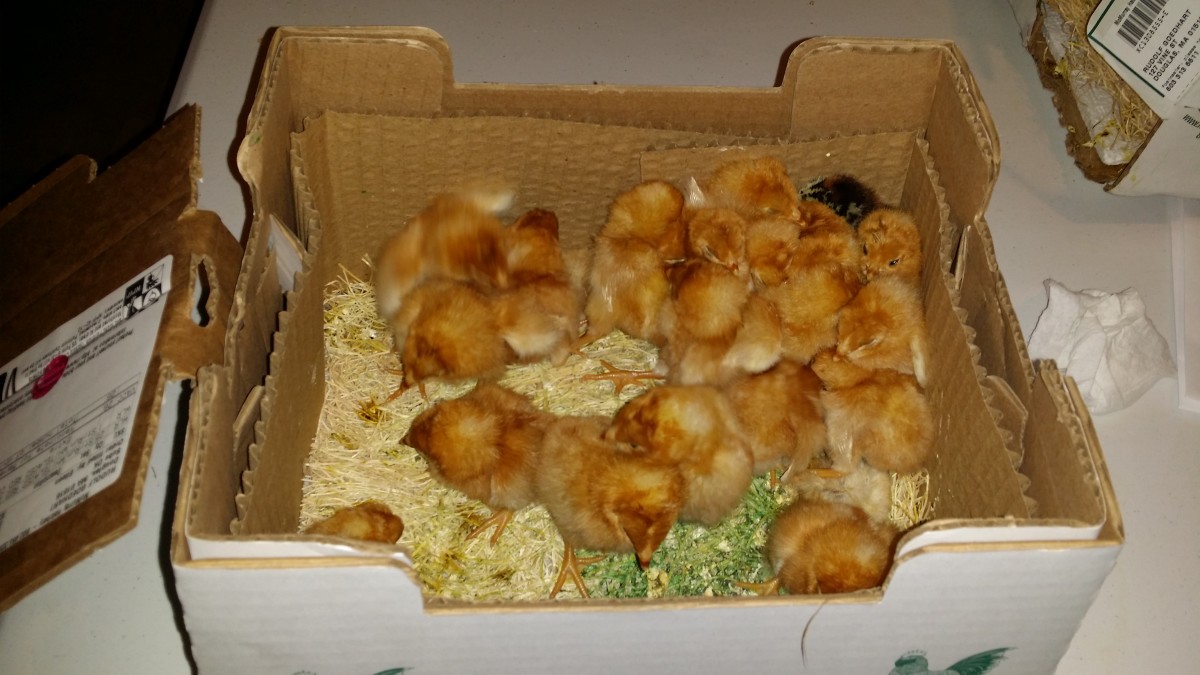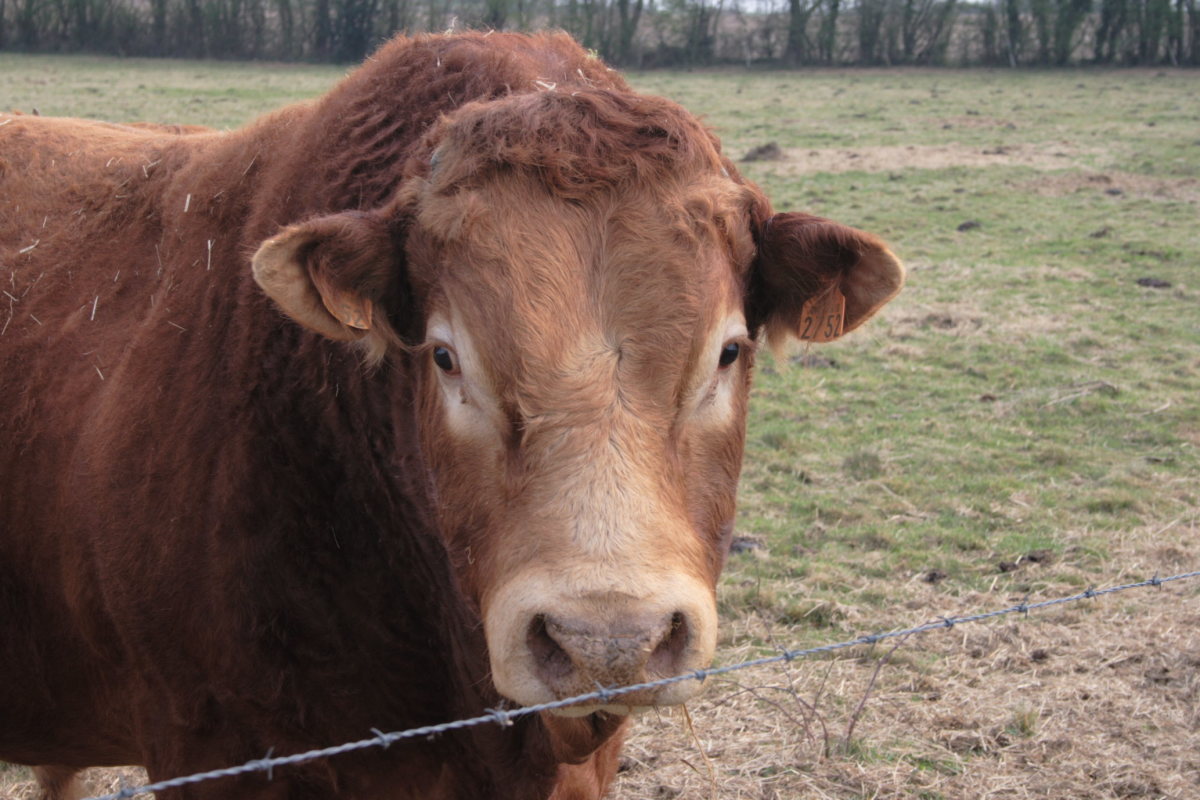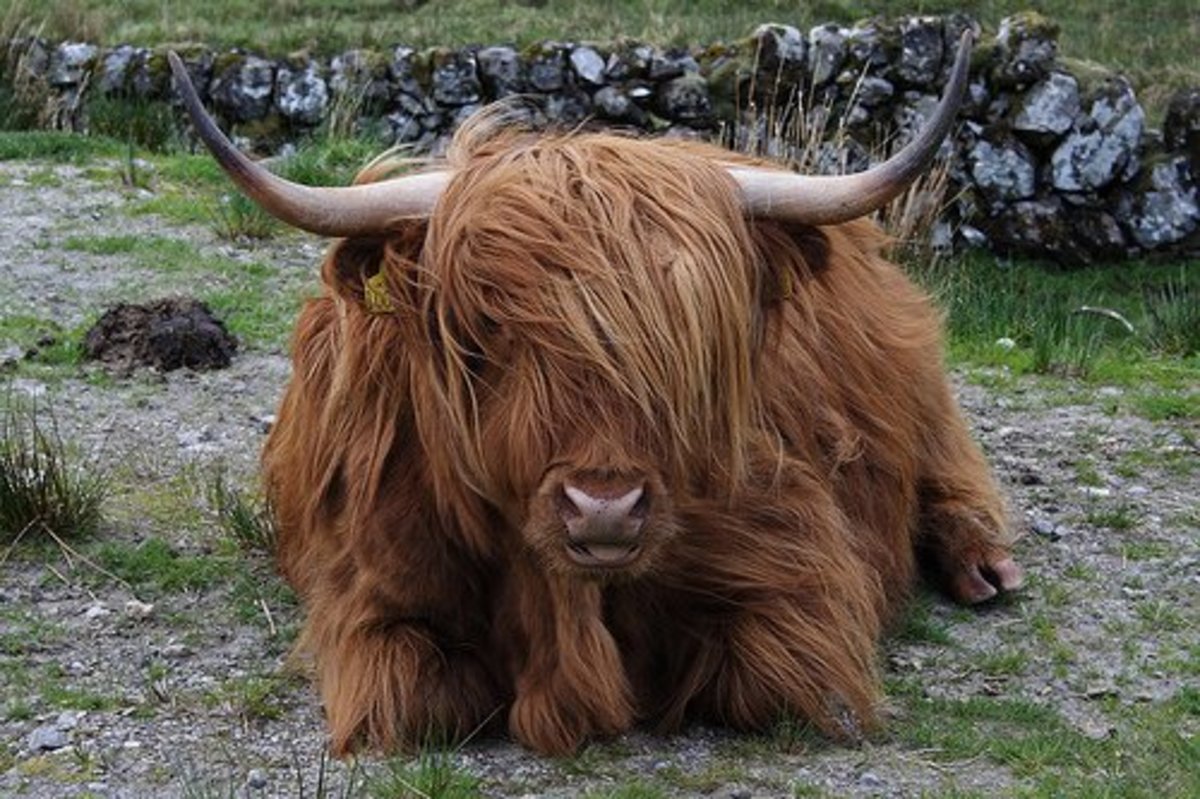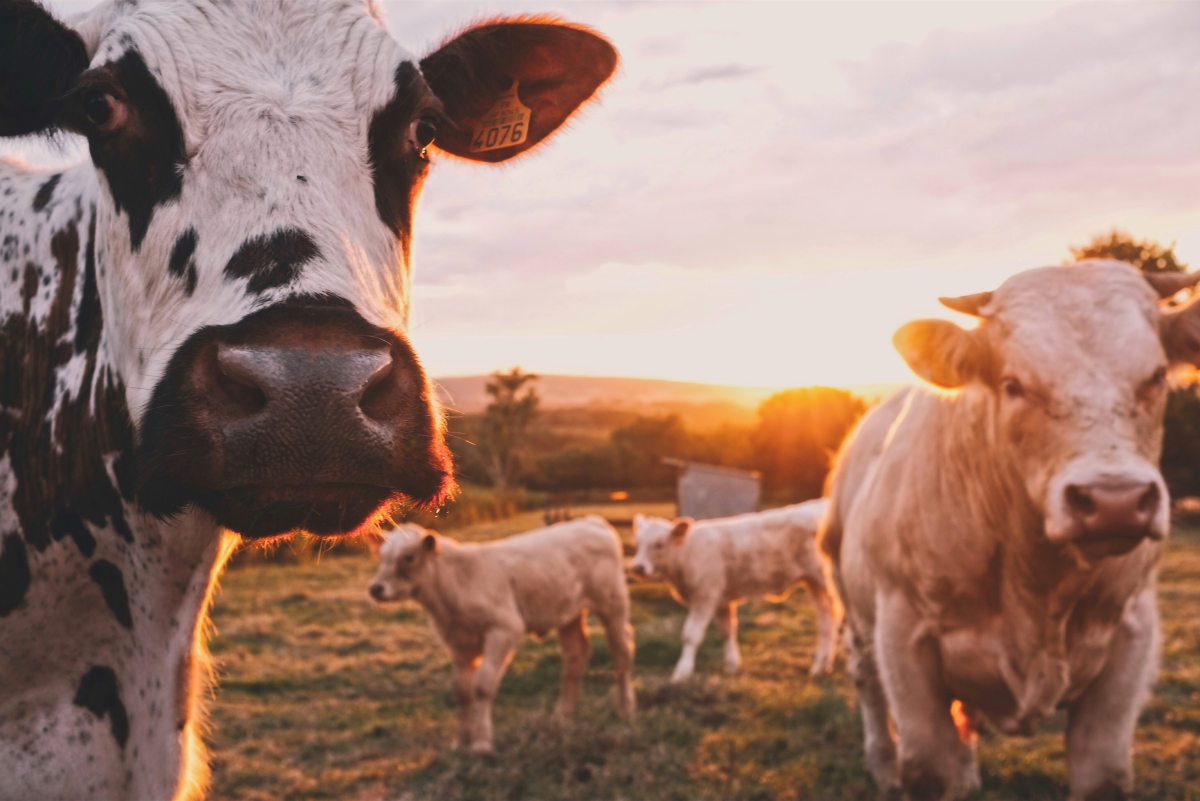Aunt Annie Mae's Farm
Aunt Annie Mae's Farm
I must have been five or six years old. Aunt Annie Mae lived on a farm (with the cows, and pigs, and chickens, cats and dogs) between Laurel and Waynesboro. Waynesboro was 29 miles from Laurel down Highway 82. Back then, in the late 1940s, just after the big war was over, the Trailways Bus Station was my favorite place to go. The Trailways bus took me to Aunt Annie Mae's house.
Mama would put me on the bus with my one little suitcase and pin a note to my blouse. The note told the driver to let me off at the Pitts Farm. The bus driver knew me, though. I made this trip many times and he always knew where to stop his big bus and let me off.
Aunt Annie Mae would see us coming and would be standing by the highway waiting, with a big, silly grin on her face. It didn't look silly to me, though. It looked like love to me.
My gigantic dog, the one Aunt Annie Mae let me keep from one of the countless litters, was wagging his whole behind that day. I had to keep him at Aunt Annie Mae's house because we had no place to keep a dog in town. Aunt Annie Mae said he was a Heinz 57 dog. I didn't know the breed she was talking about, but I knew it was an exceptional breed. He was solid black so I named him Blackie.
Aunt Annie Mae's farm was right by the side of the highway. It hadn't always been there. The highway, I mean. They put that asphalt ribbon right through Aunt Annie Mae's front yard. She had a big front yard. Well, not so much since the highway went through.
But, it gave Aunt Annie Mae lots of money and she owned lots of land anyway. She didn't care if the busses and trucks and cars came through all the time. It made her no difference. She just fenced in part of her yard to give the illusion that she had a front yard. She had always loved the white picket fence. She could raise her garden and milk her cows and keep selling eggs just as if she was still poor. I don't think they were ever poor, though.
I don't remember seeing my Uncle Don but once or twice. He worked in Laurel at a manufacturing company and he made good money and they had insurance and everything. All I know was that Uncle Don died. I don't even remember when.
When I was at their house I had to be kind of quiet during the day because he worked at night. That's why I never saw him – he would be asleep in the daytime; until he died which event I don't remember. I'm told I was very young.
I lived in Laurel with my mama, brother, and sometimes Daddy. My daddy drove a truck for long distances and was not home much. Visiting Aunt Annie Mae and the cows (and pigs, and chickens, cats and dogs) was the highlight of my summers.
Aunt Annie Mae had a particular, daily routine. She rose early, cooked a very large, country breakfast consisting of ham, or bacon, or sausage, or sometimes all three, gigantic brown colored eggs, some with double yokes in them, buttered biscuits, and homemade jelly. Oh, my, those biscuits were so amazing.
I tried to help. Looking back, I can see where it would have shaved thirty minutes or more off her preparation time if I had gone outside. But, she always smiled and let me help. I didn't really learn all that much, except maybe about how to be kind and patient, particularly with a kid who wants to "help."
Then, when the dishes were done – "done" meant washed in hot, sudsy water that turned your hands red and made them rough, rinsed in a big dishpan of warm water, turned down on a towel, then dried; each dish got a thorough drying. Then, each dish was put away in its place in the "safe." I got to stand on an upside-down bucket and rinse dishes in the dishpan of warm water. Then, I got to carefully put away the dishes in the cupboard, the one called a "safe." I think that was "deep-South speak" for cupboard. Leftovers, like biscuits and cornbread, were kept there, too.
The "safe" wasn't for china. It was for the "everyday dishes." The real, eggshell-thin, gold-rimmed china was in the dining room (this room was very formal and I didn't get to eat in there very often) in a huge piece of glass-fronted furniture called a hutch (I never did know why it was named after a rabbit's cage) with the plates turned up on their edges; which didn't at all look safe (which is a different meaning here than the cupboard 'safe'.) But that's where Aunt Annie Mae put the fine china. "Fine" meant you could only use it for company.
The Barn
Long before breakfast, Aunt Annie Mae would go outside and feed the chickens. Then she came in and cooked breakfast. After breakfast, we went to the barn; home to a plethora of delights. Upstairs was the hayloft with big, double doors that opened to the outside. To get up there, you climbed a ladder. Aunt Annie Mae let me climb up there and play as long as I was careful. The cats had babies up there and I had my playhouse up there. The cats didn't mind. They knew I wouldn't hurt their babies. Aunt Annie Mae had lots of cats. She said they kept the rat population under control. I did not like rats.
While I was in the hayloft, Aunt Annie Mae milked the cows. Sometimes she had only two or three cows to milk. She said she only did it for a hobby now. She didn't have to make a living at it any more.
She didn't get all their milk. She said that they had babies to feed. Their babies were calves. And, then she would turn that cow back into the pasture with still some milk in her udder. I thought that was a funny name for a milk bottle. Or bag. I didn't think about it much. There were too many cool things to do in the barn.
I had to be very careful in the barn. There were things like hoes, shovels, and a pitchfork - very dangerous things for little kids. But Aunt Annie Mae kept these things hanging on their own very special hooks on the walls. I had to be more careful of where I put my feet. It was easy to step in something gross. Cows and chickens and other farm creatures have no modesty or manners at all. They use the bathroom wherever they happen to be standing. I found that out the hard way.
Aunt Annie Mae always made me wear shoes, old shoes, in the barn and barnyard. She said I would get something called "hookworms" if I went barefoot. Hookworms are bad. Since the picture of the parasite is gross, I'll just post the link and if you want to read about it, go here:
http://en.wikipedia.org/wiki/Hookworm That's all I have to say about that.
Butter Churn

When Aunt Annie Mae finished milking the cow(s) we carried the milk into the screened-in back porch that had been converted to a sort of mud-room where Aunt Annie Mae could strain the fresh milk, let the cream rise, skim the cream off the top to put in the churn to make butter. Aunt Annie Mae still made her own butter and everybody said it was the best butter around. She let me churn butter any time I wanted. I got tired real quick, though.
Anyway, Aunt Annie Mae could wash vegetables fresh from the garden and have a place to change shoes and sometimes, even clothes. She called the mud around the pig-pen a "loblolly." I didn't know loblolly from shoe polish; I just knew I didn't like it.
Not that I was fastidious. I loved to make mud pies and try to feed them to Blackie and the cats, but they wouldn't eat them. I had to pretend to eat them myself. They weren't very good.
The Preacher
I never had any playmates. But, I didn't mind. I always did like my own company and I thought (if I even thought of it at all) that my "p'lack" (that's Deep South for "play like") friends were the best anyway.
They always let me be the boss of them. And I had lots of baby dolls to play with and be the boss of, or school teacher, or sometimes even the preacher of the pretend church. I was a very good preacher.
I was of the hell-fire-and-brimstone variety preacher. I was not a pastor. Pastors were soft-spoken and had lots of compassion. They baptized people and dedicated babies and visited the sick and dying. And, they preached funerals when those people died. I didn't want to preach funerals. And, at Aunt Annie Mae's house, I could preach all I wanted and as loud as I wanted.
I was the 'vangelist; that's the preacher that comes once a year and before he leaves everybody has repented of everything they ever did and some things they didn't do, just in case they forgot something. I even had the hollering and pointing - my - finger and stomping across the front of my church down pat. I brought the wrath of God down on every chicken, cow, cat, dog, and even the goose. They all knew not to come into my church with sin in their hearts and on their minds.
Muscadine vines
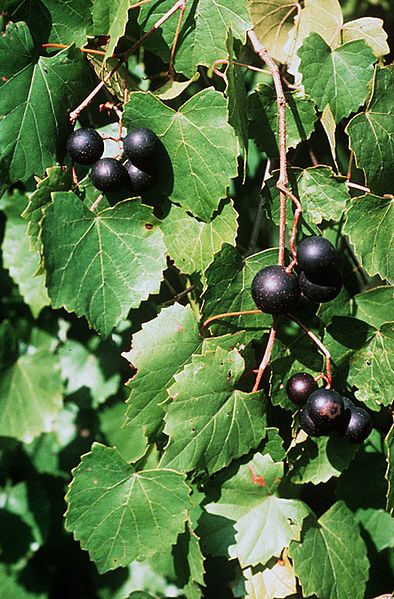
The Muscadine Arbor
Anyway, I had a special playhouse in the muskadine arbor. Muscadines are a type of grape. I didn't like them but the vines covered the arbor Aunt Annie Mae had built for the purpose. It was shady and cool inside and the imagination of a child could construct all kinds of wondrous kingdoms and fairylands.
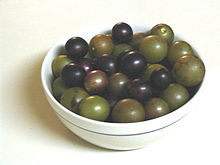
Aunt Annie Mae made jelly from them and it was whispered that Uncle might have made a little wine. I never believed it because Aunt Annie Mae was a very strong, Christian woman who wouldn't have put up with that for one minute. She did not believe in drinking at all.
Although one of her sons, my cousin, used to get drunk in a "juke joint" in town and get in fights and get put in jail overnight to sleep it off. Except one time they used knives and he had to stay awhile longer. He was not a happy drinker at all. I didn't really know him as he was already grown when I started going to Aunt Annie Mae's house. He didn't live with her. She would not have put up with him for one minute.
Conclusion
It's time to conclude this first installment of the saga of Aunt Annie Mae. There are to be other chapters to this (mostly) true story. I have taken a little poetic license (very little) and the names aren't quite real; except Aunt Annie Mae's name - it is real - my word on that.
Summary
This is a story of a little girl's memories. At age 70, looking back is nostalgic and we tend to tell things as we wanted them to be. That is not the case here. These events really did happen.
When I started to write about Aunt Annie Mae, I realized there is so much more in my memory vault. That's when I decided to make this the first hub in a series of hubs about going to the farm.
This first hub describes the setting and provides a little background and the time period. Going to Aunt Annie Mae's farm is true. This is the first article in the saga of my adventures on Aunt Annie Mae's farm.

